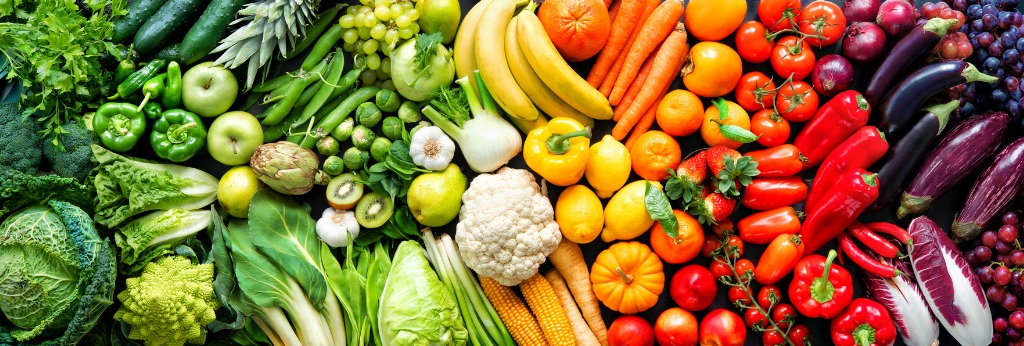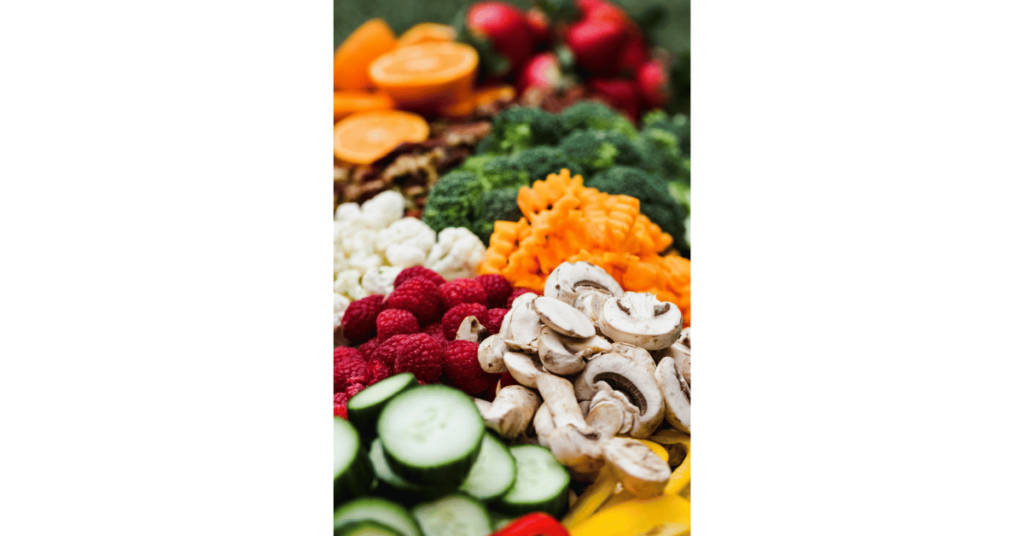Green Living in South Africa: Easy Ways to Embracing Eating Plant-Based.

Introduction
South Africa is going plant-based. More and more people are switching to a healthier, sustainable lifestyle.
Many South African celebrities are plant-based consumers. Celebrities like J M Coetzee, our famous writer and Nobel Prize Winner, eat plant-based.
Others are Zakes Mda, author and poet and Kerishnie Naicker, former Miss South Africa.
Opting for plant-based food will reduce environmental impact while improving your health.
Do you want to start living a healthier lifestyle by eating plant-based food in South Africa?
The good news is, it’s easier than you may think! Plant-based eating is booming in South Africa. You can get started with the right tips and advice.
In this blog post, we’ll share six tips to help you start eating plant-based in South Africa. Are you starting or looking to improve your plant-based diet? These tips will help you journey to green living!
What is a Plant-Based Diet

A plant-based diet focuses on eating plant foods. Foods like fruits, vegetables, grains, legumes, nuts, and seeds.
It is often associated with the vegan lifestyle. Still, it doesn’t mean you must cut all animal products from your diet. The main idea is to focus on plant foods. And then reduce animal-derived product consumption.
People choose to opt for a plant-based diet for various reasons. Some do it for ethical reasons, as they believe in the ethical treatment of animals.
Other people do it for health reasons. A plant-based diet can provide abundant vitamins, minerals, and antioxidants that benefit the body. It can also help lower the risk of non-communicable diseases.
In South Africa, there are plenty of plant-based options to choose from. You can try traditional South African dishes like morogo (wild greens). Or explore a variety of plant-based protein sources like lentils, chickpeas, and quinoa.
The Association for Dietetics in South Africa (A.D.S.A) can provide guidance and support. They will help all those interested in adopting a plant-based lifestyle.
A plant-based diet is a great way to heal your body. And to reduce your environmental footprint. And support a more sustainable and compassionate way of living. So why not give it a try?
Benefits of a Plant-Based Diet
A plant-based diet benefits your health, the environment, and animals. One of the key benefits is that it promotes well-being.
Eating whole, plant-based foods feeds your body with nutrients. Nutrients in plant-based foods are critical for optimal health.
A plant-based diet can also increase energy levels and improve digestion.
The fibre content in plant-based foods helps regulate bowel movements. Fibre also promotes a healthy gut microbiome. Additionally, a plant-based diet can support weight management.
From an environmental perspective, choosing plant-based meals reduces your carbon footprint.
Animal agriculture contributes to greenhouse gas emissions. And also deforestation and water pollution. Opt for plant-based and help conserve natural resources and combat climate change.
Lastly, adopting a plant-based diet aligns with ethical values. You promote compassion towards animals and reduce their suffering by choosing plant-based meals.
How to Start a Plant-Based Diet in South Africa: Tips for Beginners
How to Start a Plant-Based Diet in South Africa: Tips for Beginners
So you’ve decided to embrace a plant-based lifestyle in South Africa but need help figuring out where to begin? Can you still enjoy typical South African braais or Shisanyama (barbecues)? Don’t worry; I’ve got you covered with six easy tips to get you started on your plant-based journey.
Let us explore these tips.
Tip 1: More Fruits and Vegetables Into Your Meals

Unsplash/Nathan Dumlao
If you’re new to the plant-based lifestyle, including more fruits and vegetables in your meals is a great place to start.
Fruits and vegetables are the foundation of a whole food plant-based diet and offer a wide range of essential nutrients. Plus, they’re delicious!
Try experimenting with different flavours and cooking methods to make this transition easier.
Roasted vegetables, stir-fries, and vibrant salads are a few examples to include in your plant-based meals.
To make things even more exciting, Try exploring different fruits and vegetables.
Did you know our baobab tree has fruits that benefit your health? There are many varieties, each offering its unique taste and nutritional profile.
If you’re looking for inspiration, consider searching for plant-based recipes online. Also, check through cookbooks like Leozette Roode’s Vegan Cookbook.
Plant-based food bloggers and authors provide easy meal ideas that are delicious and nutritious.
Various fruits and vegetables in your meals help and take it one step at a time.
Add extra servings of fruits and veggies to your meal. Before you know it, you’ll be enjoying a diverse range of plant-based dishes and reaping the health benefits that come with it.
Tip 2: Experiment with Meat Substitutes
When transitioning to a plant-based diet, experiment with meat substitutes. Make the process much easier and more enjoyable.
In South Africa, a wide variety of plant-based alternatives are available.
Tofu, tempeh, and seitan are popular choices for those looking for a meat-like texture and taste. A variety of dishes, from stir-fries to burgers, use these options.
If you’re new to the plant-based lifestyle, incorporate meat substitutes into your meals. It can help meet cravings and make the transition smoother.
Many food companies in South Africa offer a range of plant-based products, including sausages, mince, and patties.
You can get these alternatives from the Fry Family Company. Also available at VeggieWors and Vegan Butcherie. And through many of our Supermarkets like Woolworths, Checkers, Pick n Pay, Spar, and Shoprite. You can use these alternatives and include them in your meals.
Experimenting with different meat substitutes allows you to discover new flavours and textures.
It can also be a fun way to try out new recipes. Include meat substitutes in your dishes. You can then make your plant-based journey exciting and satisfying.
Tip 3: Read Labels Carefully

iStock/gahsoon
Learning to read labels is essential when starting a plant-based diet. Many processed foods contain hidden animal ingredients.
Reading labels can help you make informed choices and ensure your products are plant-based. Look for common animal ingredients like milk powder, whey, gelatin, and honey.
One helpful tip is to familiarize yourself with plant-based food certifications and logos. Look for labels that say a product is vegan-friendly or certified vegan. These labels reassure that the product meets strict vegan standards.
It’s also important to remember that not all plant-based foods are equal. Some plant-based foods contain added sugars and unhealthy fats. By reading labels, you can choose whole, minimally processed plant-based foods. Foods that are rich in nutrients and support your health.
Taking the time to read labels is a small step. But it can make a big difference in your journey towards a plant-based lifestyle. By becoming a savvy label reader, you can make better choices.
Tip 4: Connect with Local Plant-Based Communities
Connect with local plant-based communities. This network will motivate and inspire you on your plant-based journey. Joining these communities can provide support, camaraderie, and knowledge.
You can link with like-minded individuals who are passionate about plant-based living. Search for local vegan groups on social media platforms like Facebook or Instagram. These groups often organize meetups and events for gathering.
Attend local vegan festivals or workshops. Attending these is another great way to meet fellow plant-based enthusiasts. These events often feature delicious food, informative talks, and cooking demonstrations. Allowing you to learn from experts and expand your plant-based knowledge.
If you want even more support, consider joining online forums or subscribing to plant-based newsletters. These resources provide a wealth of information. Also includes tips, recipes, and advice from experienced vegans.
Remember, connecting with local plant-based communities can make your journey fulfilling.
You’ll have a supportive network to turn to when you have questions or need guidance. You may also even make lifelong friendships along the way.
Tip 5: Find Delicious Plant-Based Recipes Online or Through Cookbooks

Find delicious plant-based recipes online or through cookbooks. These tools are a game-changer for embracing a plant-based lifestyle in South Africa. With so many resources, you’ll always have ideas for satisfying and nutritious meals.
Start by exploring plant-based food blogs, websites, and social media platforms.
You can find recipes from breakfast smoothies and hearty soups to indulgent desserts and decadent vegan cheese.
Cookbooks are another fantastic resource for finding delicious plant-based recipes. Many vegan and plant-based cookbooks with various cuisines are available in bookstores or online.
Whether you’re craving comfort food, international flavours, or quick and easy meals, there’s a cookbook out there to suit your taste.
Search for vegan meal plans or whole-food vegan diet plans online to make it even easier. These resources provide a week’s worth of recipes and meal ideas, taking the guesswork out of preparing your plant-based meals.
So go ahead and explore the vast world of plant-based cooking. It is amazing how delicious and satisfying meals you can create.
Tip 6: Plan Your Meals Ahead of Time
Planning your meals is critical in maintaining a plant-based lifestyle in South Africa.
By preparing your meals, you can ensure you have various nutritious options. These options will help you avoid falling back into old eating habits.
It also saves time and money by avoiding impulsive food purchases or unhealthy takeout options.
Begin by creating a weekly meal plan that includes breakfast, lunch, dinner, and snacks. Mix fruits, vegetables, whole grains, legumes, and plant-based protein sources like tofu or beans.
Mixing your plant-based foods will ensure you get all the nutrients for a healthy diet.
Create your meal plan, and make a grocery list of all the ingredients you’ll need for the week. This way, you can avoid unnecessary store trips and ensure you have everything you need to prepare your meals.
Prep your ingredients in advance, such as washing and chopping vegetables or cooking grains and legumes.
Ingredients sorting and washing will make meal preparation faster and more manageable during the week when you have no time.
Conclusion
A plant-based diet plan can help you stay on track and make healthier choices. It allows you to focus on your health. So, take some time each week to plan your meals. You’ll be well on your way to embracing a plant-based lifestyle in South Africa.
